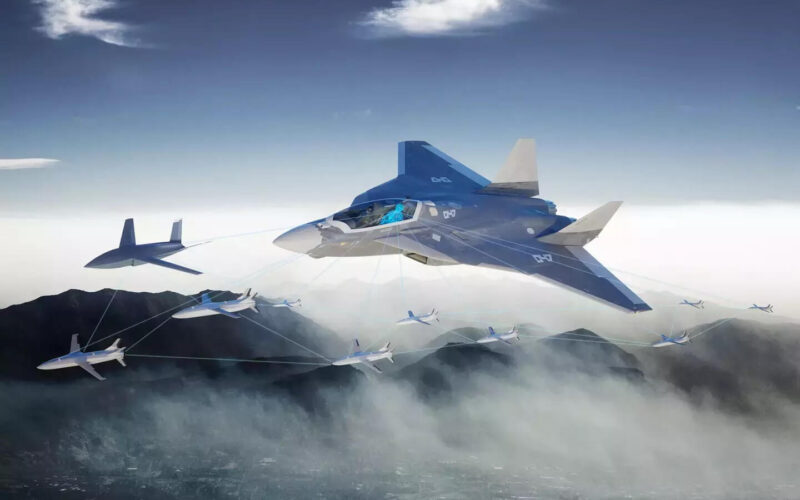After two false starts, Dassault and Airbus finally reached an agreement on the Future Combat Air System program.
Eric Trappier, Chairman and Chief Executive Officer of Dassault Aviation, confirmed in an interview with Le Figaro that the two manufacturers finally saw eye to eye for the launch of phase 1B of FCAS.
“We have obtained all the guarantees to open a new phase of what is, I remind you, an upstream study phase and not yet a program,” Trappier detailed. “We are confirmed in our role as prime contractor and architect of the aircraft, and we have obtained protection for our industrial know-how and our technologies.”
Third time is the charm?
On November 18, 2022, German Defense Minister Christine Lambrecht announced that “after intense negotiations, an agreement between industrialists was reached” on the FCAS, ending a year-long stalemate. The deal was confirmed by French authorities.
But a few days later, Trappier denied having signed any agreement with Airbus, downplaying Lambrecht’s declaration as a “political pseudo-announcement.”
A source close to the matter even defined the premature announcement as “a German attempt to twist the arm of France,” as reported by the French business media Challenges.
Another similar announcement was made on November 25, 2022, when French Prime Minister Elisabeth Borne visited her counterpart, Olaf Scholz, in Berlin.
“An agreement has been reached between our industrialists, to be validated by the states, and I think it is in progress,” she said at a joint press conference. And again, the declaration was shut down by Dassault.
A fragile equilibrium
Defined as a “system of systems” by its stakeholders, the FCAS program is composed of seven subprograms, or “pillars,” which had to be distributed among manufacturers.
Trappier voiced his concerns several times that the Next Generation Fighter (NGF) subprogram around which the FCAS is built was being taken away from the Rafale manufacturer, despite being given industrial leadership.
Specifically, Germany and Airbus demanded to have the final word on the flight controls of the NGF, the cockpit, and the stealth capability, and to share intellectual property rights within the pillar.
Under these conditions, Dassault refused to move forward, with Trappier explaining: “If I give my background [knowledge – ed. note] today and the program is canceled in two years, how would I be protected from the competition?”
Several times now, Trappier has raised the possibility of a plan B should the FCAS fail. Dassault’s CEO advocates for an alternative “method of governance” that would see the industrial base of the program being handpicked by the prime contractor instead of the participating governments. A similar system was used to develop the nEUROn stealth combat drone demonstrator, a program that involved six European countries.
Not out of the woods yet
According to Dassault’s CEO, a consensus was reached with Airbus regarding the property rights surrounding the program.
“Ownership of the work to be carried out jointly will be shared, but the technologies and know-how that belong to us will not be,” Trappier detailed. “It is a win-win agreement for all parties.”
If the manufacturers reached an agreement, the deal has yet to be approved by the respective governments. And it was precisely the German authorities that refused to deal with what Luftwaffe Chief of Staff Ingo Gerhartz defined as technological “black boxes.”
“It should be possible to hand intellectual property rights from one branch of industry to the other so that all partners can make their own developments in the future,” Gerhartz commented, hinting at the use of Dassault’s technologies for other German programs.
If the agreement moves forward, the different industrialists involved in the project will be able to share the €3.6 billion earmarked for phase 1B, which should pave the way for the development of a technology demonstrator.
Manufacturers and authorities will have to sit again at the table of negotiations for phase 2, with the production, assembly, and flight tests of this demonstrator. The maiden flight should take place by 2029 (two years later than initially envisioned) and mark the official beginning of the program.

